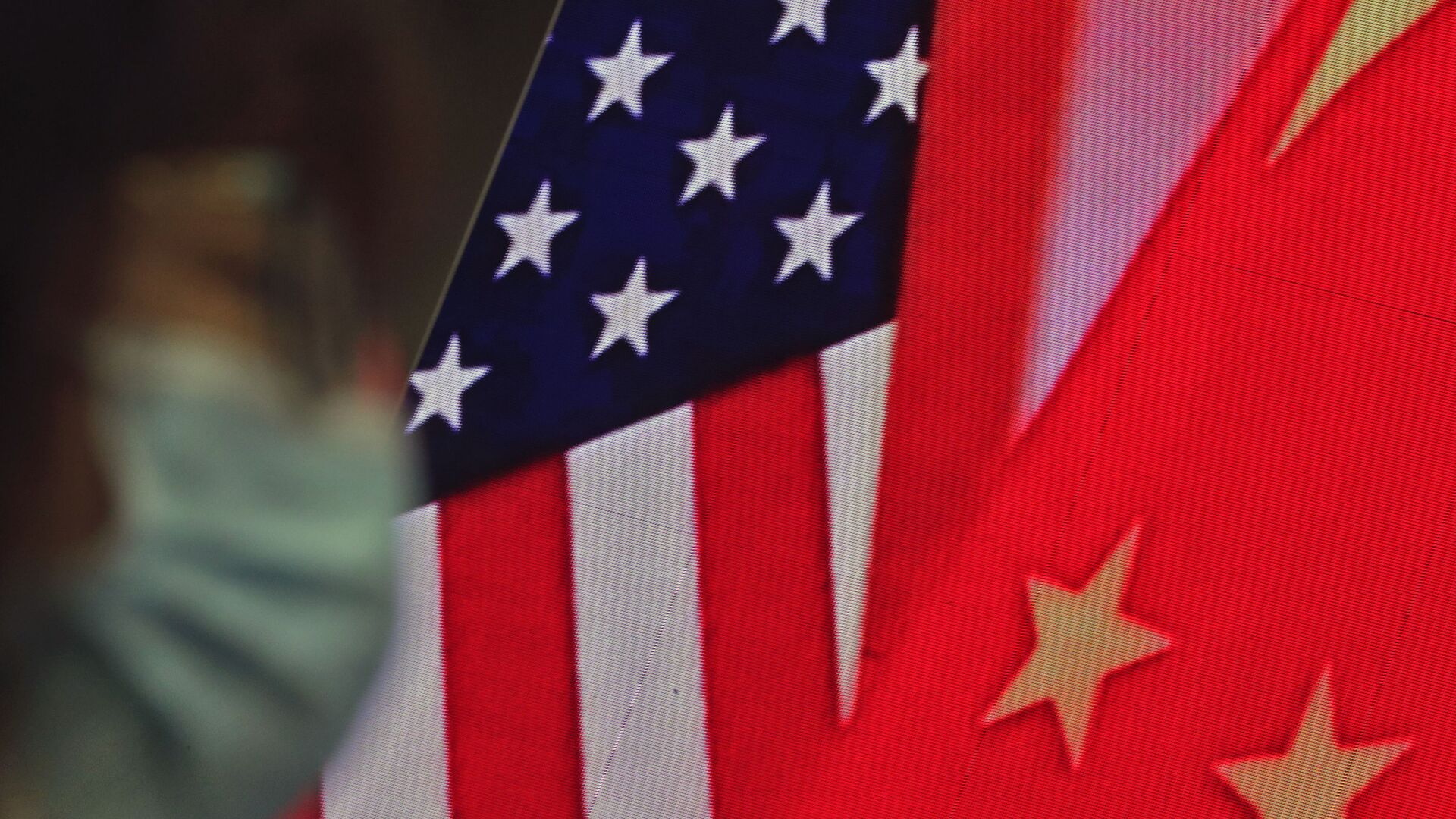https://sputnikglobe.com/20211004/us-trade-chief-says-not-ruling-out-starting-new-trade-probe-on-china-1089666036.html
US Trade Chief Says Not Ruling Out Starting New Trade Probe on China
US Trade Chief Says Not Ruling Out Starting New Trade Probe on China
Sputnik International
WASHINGTON (Sputnik) - The United States is not ruling out launching a new investigation on China’s alleged non-market practices, US Trade Representative... 04.10.2021, Sputnik International
2021-10-04T22:40+0000
2021-10-04T22:40+0000
2022-08-06T13:25+0000
china
tariffs
us trade representative (ustr)
us
https://cdn1.img.sputnikglobe.com/img/07e5/03/03/1082248057_0:160:3073:1888_1920x0_80_0_0_aa9cefac610f2aac00bf5bfaa0e0095a.jpg
"We will look at all available tools on addressing our concerns and ensuring that we are able to defend the interests of the American economy as a legal matter," Tai told a livestreamed discussion hosted by the CSIS think-tank when asked if Washington will start a new Section 301 probe against Beijing. Section 301 is a wide-ranging US trade enforcement legislation that can be used among others on countering China’s use of industrial subsidies. If China fails to live up to its Phase One trade obligations with the United States, the White House can use the law to reconfigure or add new tariffs against China.Washington and Beijing signed the Phase One trade agreement on January 15, 2020. Under the deal, inked by the previous Trump administration, the United States retained 25% duties on Chinese goods worth around $250 billion per year, and a 7.5% tariff on goods worth $120 billion. China was obliged to purchase approximately $75 billion worth of US-made goods, $50 billion worth of energy, $40 billion worth of agricultural products and up to $40 billion in services over the next two years. However, the Chinese government has fallen short on these purchases, raising questions on how the current Biden administration should pursue the deal in the best US interests.In a statement released on Monday ahead of the CSIS-hosted discussion, the Office of the US Trade Representative said it anticipated a meeting between Tai and China’s trade ministry to find a path forward for the Phase One. It also said the meeting was likely to raise Washington’s concerns over China’s alleged non-market, anti-competitive practices."Even as we work to enforce the terms of Phase One, we will raise our broader concerns with Beijing's non-market policies and practices like abuse of state-owned enterprises, anti-competitive behavior and subsidies, the theft of American intellectual property directly and in coordination with our allies and partners. The president will use all of the tools at his disposal to create reciprocity and a level playing field for US workers," the statement from the Office of the USTR said.The United States will also start applying certain tariff exclusions to mitigate the effects of some tariffs that have not generated any strategic benefits for Americans, the statement added.
china
Sputnik International
feedback@sputniknews.com
+74956456601
MIA „Rossiya Segodnya“
2021
Sputnik International
feedback@sputniknews.com
+74956456601
MIA „Rossiya Segodnya“
News
en_EN
Sputnik International
feedback@sputniknews.com
+74956456601
MIA „Rossiya Segodnya“
Sputnik International
feedback@sputniknews.com
+74956456601
MIA „Rossiya Segodnya“
china, tariffs, us trade representative (ustr), us
china, tariffs, us trade representative (ustr), us
US Trade Chief Says Not Ruling Out Starting New Trade Probe on China
22:40 GMT 04.10.2021 (Updated: 13:25 GMT 06.08.2022) WASHINGTON (Sputnik) - The United States is not ruling out launching a new investigation on China’s alleged non-market practices, US Trade Representative Katherine Tai said Monday, as the two countries prepared to find ways to move forward with the incomplete Phase One trade deal between them.
"We will look at all available tools on addressing our concerns and ensuring that we are able to defend the interests of the American economy as a legal matter," Tai told a livestreamed discussion hosted by the CSIS think-tank when asked if Washington will start a new Section 301 probe against Beijing.
"We have all kinds of tools available to us and Section 301 as a trade enforcement tool is a very, very important tool."
Section 301 is a wide-ranging US trade enforcement legislation that can be used among others on countering China’s use of industrial subsidies. If China fails to live up to its Phase One trade obligations with the United States, the White House can use the law to reconfigure or add new tariffs against China.
Washington and Beijing signed the Phase One trade agreement on January 15, 2020. Under the deal, inked by the previous Trump administration, the United States retained 25% duties on Chinese goods worth around $250 billion per year, and a 7.5% tariff on goods worth $120 billion.
China was obliged to purchase approximately $75 billion worth of US-made goods, $50 billion worth of energy, $40 billion worth of agricultural products and up to $40 billion in services over the next two years. However, the Chinese government has fallen short on these purchases, raising questions on how the current Biden administration should pursue the deal in the best US interests.
"I think that we are going to have to have a really honest conversation with China about all the elements of the Phase One," Tai said. "While I wouldn't call Trump's China policies a failure, they haven't gotten us where we need to go."
In a statement released on Monday ahead of the CSIS-hosted discussion, the Office of the US Trade Representative said it anticipated a meeting between Tai and China’s trade ministry to find a path forward for the Phase One. It also said the meeting was likely to raise Washington’s concerns over China’s alleged non-market, anti-competitive practices.
"Even as we work to enforce the terms of Phase One, we will raise our broader concerns with Beijing's non-market policies and practices like abuse of state-owned enterprises, anti-competitive behavior and subsidies, the theft of American intellectual property directly and in coordination with our allies and partners. The president will use all of the tools at his disposal to create reciprocity and a level playing field for US workers," the statement from the Office of the USTR said.
The United States will also start applying certain tariff exclusions to mitigate the effects of some tariffs that have not generated any strategic benefits for Americans, the statement added.

